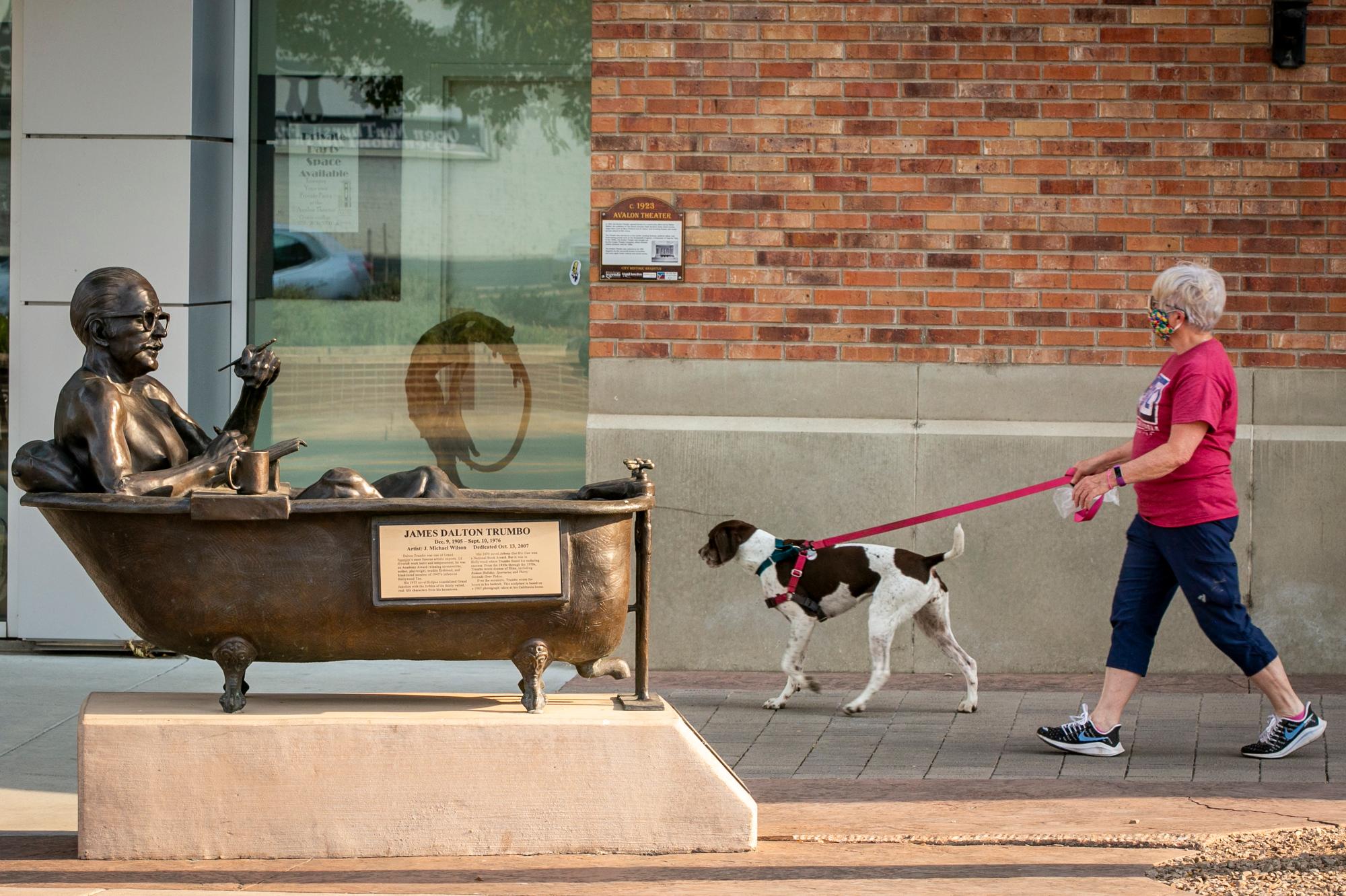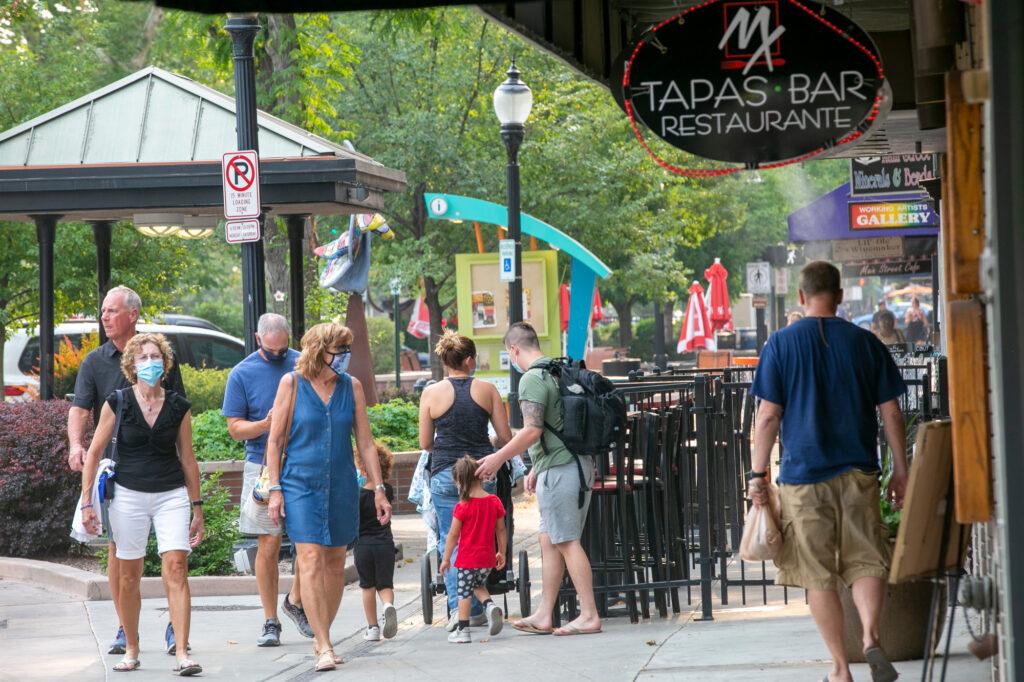
In Mesa County, health care workers are exhausted. And the COVID-19 cases keep coming.
“We just got to keep going,” said Dr. Thomas Tobin. “Cause there is no other option.”
Tobin is the chief medical officer for Community Hospital in Grand Junction. Starting around late April, Mesa County started to experience a dramatic rise in COVID-19 cases — and now has some of the highest infection rates in the state. Hospitals are near or at capacity nearly every day.
“The admissions that I’ve seen in the last six weeks or so have all been unvaccinated people,” Tobin said.
While nearly half of all Coloradans are fully vaccinated, that simple number doesn’t give the full picture. Large swaths of the state either outpace that average or fall far behind it. In Summit County, for example, nearly three out of four eligible residents are fully vaccinated. In Moffat, however, it’s less than one in three.
Mesa County seems to have stalled at a vaccination rate of just about 40 percent for residents 12 and older. And earlier this month, the county's largest hospital saw its biggest increase in COVID-19 hospitalizations since the pandemic began.
As Tobin works through the county’s uptick in cases, he sees only one way out: vaccinate, vaccinate, vaccinate.
“It’s the same way we got out of polio and smallpox,” he said, “and we can go down the list, right?”
Some vaccinated people in the county still have contracted serious cases of the virus, but the numbers of them are very small. Still, convincing most residents the vaccine is right for them has proved difficult.
Some who are not getting vaccinated point to conspiracy theories that have been circulating online. Others, like Deidre Kuechler, believe the vaccines were developed too quickly.
“I don’t think enough was done,” she said, standing on Grand Junction’s Main Street. “I think we’re rushing a lot of things.”
Health officials insist the vaccines were developed using research that had been in the works for decades. A big infusion of federal funding and ample study volunteers helped speed testing and development without cutting corners.
But that’s not enough for Kuechler, a pharmacy tech, and mom to three young kids.
“We don’t know the effects down the road,” she said.
Few downtown Grand Junction businesses are enforcing mask wearing or social distancing. The county and federal government say those restrictions are no longer needed for anyone who’s vaccinated.

The problem is, so few residents are.
That doesn’t surprise Sue Vorhees.
“No, they’re people that stand-up for what they believe and choose to do as they want to do,” she said while sitting on a park bench a few miles from downtown Grand Junction.
She’s a retired nurse who now lives in the next county over, but grew up here and spent her career at Mesa County hospitals. She’s chosen to not get vaccinated, at least not yet, despite having lung disease and other health issues — and a trio of doctors urging her to get a vaccine.
“It’s like, I’ve worked in medicine,” she said. “I will make my own choices”.
Vorhees had COVID-19 but is more afraid of vaccine side effects than getting the virus again.
Jeff Kuhr, head of Mesa Public County Health, has heard that kind of thing a lot. He even wrote a recent op-ed in the local paper to try to counteract that notion.
“There are no long-term negative consequences of this vaccine when you look at all the major research universities and the CDC,” he said.
But he explained that’s a tough message to get across in a community used to going its own way when it comes to COVID-19.
Last spring, Mesa County opened up its economy faster than the rest of the state and was able to maintain low levels of transmission of the virus — for a time.
“We wanted to solve it ourselves,” Kuhr said. “Well, we did very well with that. But now, we have that same attitude, but we’re in a completely different situation.”
So the county is trying a new tactic to nudge people toward vaccines: money.
Mesa County is now giving two $500 prizes each week to residents who get vaccinated and sign up for the giveaway. Also, all vaccinated residents can throw their name in the hat for a grand prize of up to $90,000. The prize gets bigger the more people who get the vaccine.
And of course the state is also offering chances to win $1 million prizes to people who get their shots.
Still, despite the incentives, there is not a run on vaccines at the Mesa County health department, where on a recent afternoon, the line was slow and steady. No one in line said they had recently changed their mind on the vaccine. Instead, the people talked about having been out of the country until now or having waited to get vaccinated to give older people a chance first.
About half the line was made up of masked-up teenagers, including a 13-year-old boy, there for his second shot.
“I just think you should get the vaccine, so it could be over quicker and we can just go back to normal life,” he said.
He and his sister actually got COVID-19 last month but are now fine. He didn’t want to share his name because he doesn’t want to be ridiculed by his classmates.
“They’ve, like, listened to the conspiracy theories,” he said, “and definitely aren’t going to get it and don’t think anyone should.”








